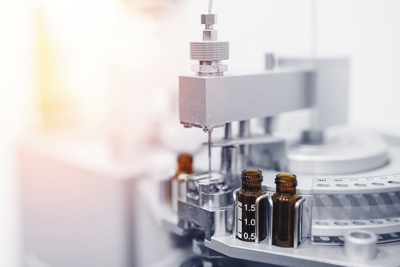The pharmaceutical industry is constantly going through changes, from new techniques for manufacturing medicine to streamlining the distribution of medicine.

By Sandy Smith
For many, the pain points for pharmaceutical companies are familiar: finding good help, meeting increasing demand for medications and filling orders quickly and accurately—if at all possible, delivering the next day.
That’s what Monty McVaugh, manager of product management at MHI member OPEX Warehouse Automation, encounters when he talks to customers in the pharmaceutical sector.
But other challenges are somewhat unique to the industry, including the ability to trace and track throughout the supply chain, McVaugh said.
“The pharmaceutical industry is constantly going through revolutionary changes, including new techniques of how to manufacture medicine, and automating and streamlining the distribution of medicine to the end patient.”
It is an industry that has been under increasing regulatory pressure—and challenged in responding to COVID-19.
Supply chain visibility
In 2013, the Food and Drug Administration began implementing the Drug Supply Chain Security Act (DSCSA), intended to build a system to identify and trace prescription drugs at every phase in manufacture and distribution. While some aspects are already in place—such as standards for licensing third-party logistics providers—others will not be fully enabled until 2024. The coming changes focus primarily on traceability at the product package level.
McVaugh said this has been a “driving force in digitalizing the information on medicine packaging. One aspect of DSCSA is every package—which is the smallest individual unit available for sale by a manufacturer, distributor or repacking plant—must have a unique product identifier on it.”
The identifier is most often a Datamatrix barcode, readable by both humans and machines.
In November 2020, dispensers were no longer able to accept products that did not have unique serial numbers, wrote Brajinder Singh, a partner with Clarkston Consulting, on his company’s blog. The company advises life sciences and consumer health companies on regulatory issues.
In addition, dispensaries also needed to verify products as genuine by providing the serial number to manufacturers within 24 hours of receipt.
 MHI Solutions Improving Supply Chain Performance
MHI Solutions Improving Supply Chain Performance